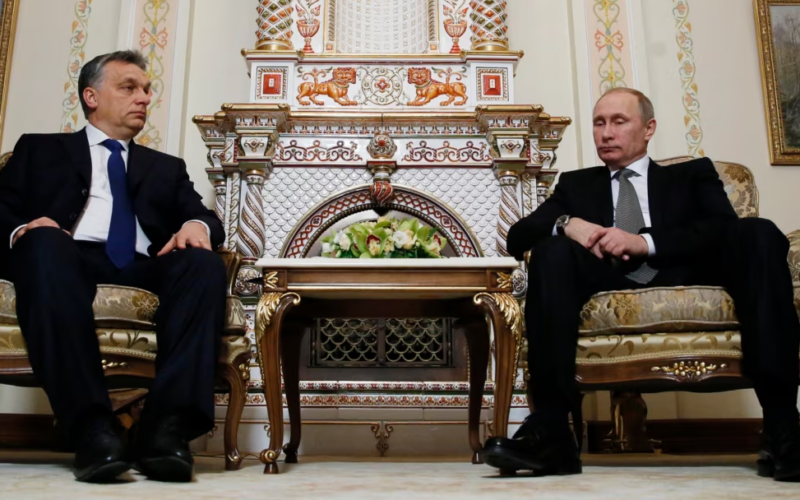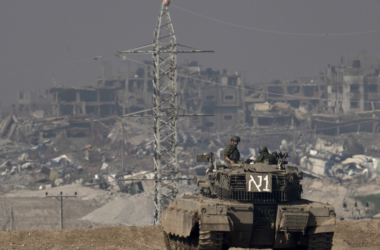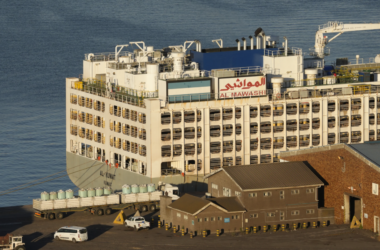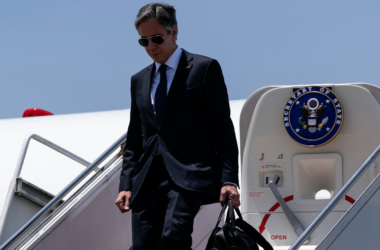Hungarian Prime Minister Viktor Orbán made a surprise visit to Moscow on Friday, meeting with Russian President Vladimir Putin. Orbán described the visit as part of a “peace mission” concerning the ongoing conflict in Ukraine, a move that has drawn sharp criticism from European Union officials.
Having assumed the rotating presidency of the EU Council earlier this week, Orbán’s decision to travel to Moscow has been met with widespread disapproval. His visit follows rumors that sparked indignation among EU leaders, and on Friday morning, a Hungarian government aircraft was seen landing in Moscow with Orbán on board.
The meeting between Orbán and Putin was confirmed by Orbán’s chief of staff, as reported by the Hungarian news agency MTI. Orbán tweeted, “The peace mission continues. Second stop: Moscow.” Kremlin spokesperson Dmitry Peskov stated that discussions between the two leaders would cover the conflict in Ukraine and other unspecified topics. Putin expressed readiness to discuss the “nuances” of peace proposals and was keen to hear Orbán’s views and those of other European partners.
The visit has been condemned by high-ranking EU officials. Josep Borrell, the EU’s High Representative for Foreign Affairs, emphasized that Orbán’s visit was strictly in the context of Hungary’s bilateral relations with Russia. He pointed out that despite Hungary holding the EU Council Presidency, it does not have the mandate to represent the EU in foreign affairs—a role reserved for the President of the European Council, Charles Michel, and himself.
Green MEP and Hungary expert Daniel Freund called for the revocation of Hungary’s EU Council Presidency, stating, “Orbán is doing exactly what many feared in his first week of presidency: causing damage. He will likely continue to provoke the EU at every opportunity.” Freund added that Europe could not afford to be weakened by what he described as Orbán’s self-serving actions.
Orbán defended his initiative prior to landing in Moscow. In a radio interview on Friday, he argued that remaining passive in Brussels would not bring peace closer and that proactive measures were necessary. Orbán stated, “Hungary neither has the mandate nor the international political weight but we can be a tool in the service of God and those who desire peace.” He acknowledged the significant differences between the positions of the warring sides but insisted that a long-term effort was required.
European Commission President Ursula von der Leyen dismissed Orbán’s approach, asserting that appeasement would not stop Putin. She emphasized that “only unity and determination will pave the way to a comprehensive, just, and lasting peace in Ukraine.” German Chancellor Olaf Scholz echoed the criticism, clarifying that Orbán was not representing the EU in Moscow and reaffirming the EU’s stance toward Russia.
Orbán’s last visit to Moscow was in September 2022, months after the conflict in Ukraine began. That visit was for the funeral of former Soviet leader Mikhail Gorbachev, where Orbán had no direct contact with Putin. The most recent direct meeting between Orbán and Putin occurred at the Belt and Road Forum in Beijing last autumn.
Orbán’s visit marks a significant deviation from typical EU diplomatic channels and underscores Hungary’s complex relationship with both the EU and Russia. The political ramifications of this visit are likely to be felt across European capitals, potentially influencing Hungary’s role within the EU as it navigates its Council presidency.








